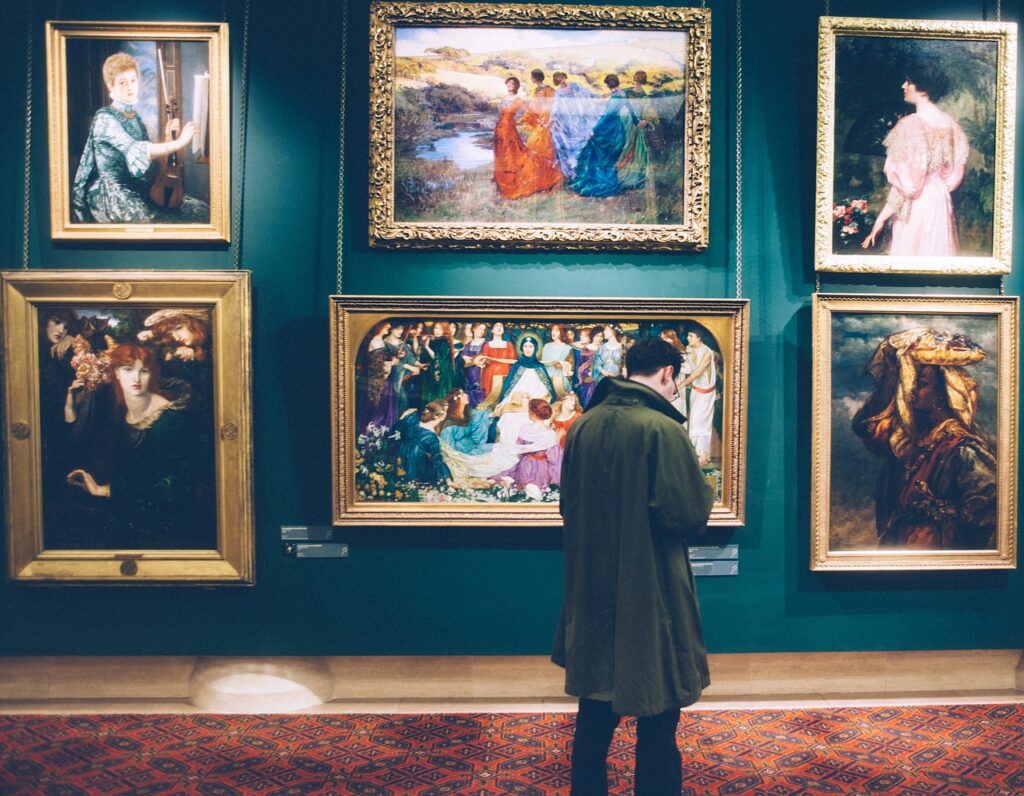Alright, buckle up because we’re about to dive into the life of Conrad Peutinger II 1475, a guy who was born in 1475 and is somehow still fascinating in the world of today. You might be thinking, “1475? Really? I barely know who’s trending on Twitter right now, and you want me to care about some dude from over 500 years ago?” I get it. But trust me, once you learn a bit about Peutinger, you’ll see that his story feels surprisingly modern—like one of those Netflix period dramas with a little edge.
So, let’s unpack the life and times of Conrad Peutinger II, a man who was far more than just a historian. He was a scholar, a diplomat, and honestly, kind of a nerd (in the best possible way). And while you may not have heard of him until now, I’m convinced he’s about to become your new favorite underrated Renaissance figure. Let’s jump in.
Meet Conrad Peutinger II: The Renaissance Man with Many Hats
First off, can we talk about how people back in the day seemed to do it all? Peutinger was no exception. Born in Augsburg, Germany, he was smack-dab in the middle of the Renaissance. This was the time when Europe was bouncing back from the Middle Ages, rediscovering art, science, and philosophy like it was a Black Friday sale on culture. And our guy Peutinger was right in the thick of it.Conrad Peutinger II 1475.
Peutinger wasn’t content with just mastering one thing. No, no, no. He decided he’d dabble in everything. He was a lawyer, a diplomat, a humanist scholar, and a collector of manuscripts. And let’s not forget his most famous contribution: the Tabula Peutingeriana, a Roman road map that we’ll get into later. But the guy was essentially juggling more interests than I can manage Netflix series at once, which is saying something.
The Tabula Peutingeriana: A Roman Map Ahead of Its Time
Okay, so if you take nothing else from this article, remember this—Peutinger’s claim to fame is this funky little thing called the Tabula Peutingeriana. It’s a map, but not just any map. Imagine Google Maps, but for the Roman Empire. Yeah, it’s that cool.
The Tabula Peutingeriana is an ancient Roman road map that stretches out, kind of like a medieval scroll. It charts all the major roads, cities, and landmarks from the western parts of Europe all the way to India. The thing is a logistical masterpiece—like, Romans really had their road game on point. Peutinger didn’t create this map (it was already an ancient artifact when he got his hands on it), but he preserved it and passed it on to the world.
You’ve got to appreciate how Peutinger knew this map was something special. I mean, I’ve lost old family photos I swore I’d keep safe, and here’s this guy in the 1500s preserving an invaluable map of the Roman Empire that’s now one of the only surviving records of its kind. Not all heroes wear capes, people. Some just hold onto priceless ancient documents.
Conrad Peutinger’s Humanist Vibes
Now, let’s talk about Peutinger’s humanist streak because this is where he really shines as a Renaissance figure. You know how every era has that one person who’s into all the intellectual trends of the time? That was Peutinger. He was part of this movement called humanism, which was all about rediscovering the classics—Greek and Roman texts—and bringing them back into the conversation.
Conrad Peutinger II 1475
Peutinger had a love for ancient Roman culture that ran deep. In fact, he was part of a group of scholars who gathered ancient manuscripts like they were collecting rare Pokémon cards. (Okay, maybe not exactly like that, but you get the idea.) They were all about understanding the ancient world to better appreciate the present, which, let’s be honest, is a pretty cool way to spend your days.
But Peutinger wasn’t just a passive collector. He actively promoted education and the importance of ancient texts. He wanted people to learn from the past, to grow intellectually. It’s almost like he was one of those friends who’s constantly sending you interesting articles or podcasts, except in this case, it was dusty old manuscripts, and you didn’t really have a choice but to pay attention.
Diplomat Extraordinaire
Now, it wasn’t all about books and maps for Peutinger. The guy had serious diplomatic chops, too. He worked closely with Maximilian I, Holy Roman Emperor, as his trusted advisor. So, not only was Peutinger the nerdy historian in the corner, but he was also rubbing elbows with royalty. Talk about a versatile resume.
His work in diplomacy meant he traveled around quite a bit, representing the empire and handling tricky negotiations. In other words, Peutinger was that guy you send in when things are starting to go sideways, but you still want to come out of the situation looking good. He had this way of balancing intellect with political savvy, which, as we all know, is a rare combo.
But even when Peutinger was busy with court politics, his heart always seemed to come back to his intellectual pursuits. I mean, here’s a guy who’s helping shape European politics and still finds time to geek out over old Roman maps. You’ve got to respect the hustle.
Fun Fact: He Was Friends with Some Serious Heavyweights
One of the coolest things about Peutinger is that he wasn’t just a solo player—he had some pretty impressive friends. Ever heard of Erasmus of Rotterdam? Yeah, Peutinger was tight with him. Erasmus was like the ultimate Renaissance intellectual, and the fact that Peutinger was in his circle shows just how influential he was in the scholarly world.
Conrad Peutinger II 1475
They wrote letters back and forth, like long-distance BFFs, talking about everything from politics to philosophy. It’s kind of comforting to know that even back in the 1500s, people were still staying in touch with their friends over long distances—just, you know, without smartphones and Instagram DMs.
Why Conrad Peutinger Still Matters Today
You might be wondering, “Why should I care about Conrad Peutinger? Sounds like he had a cool life, but what does that have to do with me?” Great question.
Peutinger is a reminder that intellectual curiosity never goes out of style. He had this insatiable hunger for knowledge, whether it was about ancient Roman roads or the intricacies of diplomacy, and he wasn’t afraid to dive in headfirst. In a world where we’re constantly bombarded with information (hello, social media!), Peutinger’s approach to deep, focused study feels like a refreshing change of pace.
Plus, his work in preserving history—especially the Tabula Peutingeriana—means that we still have access to these ancient ideas and insights. The map, along with Peutinger’s scholarly legacy, gives us a glimpse into how people in the past saw the world, and in a weird way, it connects us all across time.
My Take: Conrad Peutinger Was a Nerd Icon
Look, I’ll be honest—Conrad Peutinger wasn’t a household name for me either until I started digging into his life. But the more I learned, the more I realized this guy was an absolute icon of the Renaissance. He was curious, passionate, and a bit of an overachiever (but in a good way).
I like to think that Peutinger was someone who never stopped learning, always trying to understand the world around him just a little bit better. And that’s something I can get behind. Maybe we won’t all preserve ancient maps or advise emperors, but we can definitely take a page from Peutinger’s book and chase after our own passions with the same enthusiasm.
So, next time someone asks you about Renaissance intellectuals, feel free to drop Conrad Peutinger II into the conversation. Who knows? Maybe you’ll inspire someone else to appreciate this unsung hero of the past.
Conrad Peutinger II (1475) – FAQs
Who was Conrad Peutinger II?
Conrad Peutinger II was a German humanist, diplomat, and antiquarian born in 1475 in Augsburg, Germany. He is best known for his scholarly work during the Renaissance period and for preserving and publishing the Tabula Peutingeriana, a Roman road map.
What is the Tabula Peutingeriana?
The Tabula Peutingeriana is an ancient Roman map that depicts the road network across the Roman Empire. Peutinger inherited the map and published it in the early 16th century, gaining recognition for preserving this significant artifact of ancient geography.
What were his contributions to the Renaissance?
As a prominent figure of the German Renaissance, Peutinger was a key intellectual in humanist circles. He corresponded with leading humanists and worked to preserve ancient Roman manuscripts and artifacts. His scholarly focus on history and archaeology helped enrich the Renaissance’s rediscovery of classical antiquity.
What were his roles in society?
Peutinger was also a diplomat and legal scholar, serving as a city councilor in Augsburg and an advisor to the Holy Roman Emperor Maximilian I. His influence extended to both political and scholarly arenas, where he played a role in the cultural revival of Roman and classical knowledge.
What is Peutinger known for in cartography?
Peutinger’s name is most associated with the Tabula Peutingeriana, although he did not create it. He played a crucial role in its preservation, making the map available to scholars and the public. This Roman road map, which stretched from Europe to India, is one of the most significant geographical documents of the ancient world.
Where did he live and work?
Peutinger lived in Augsburg, Germany, a thriving city during the Renaissance. It was a center for trade and learning, which allowed Peutinger to engage with other intellectuals of the time. His home city was influential in fostering his interests in law, politics, and antiquity.
What is his legacy?
Conrad Peutinger II left a lasting legacy in both the intellectual and political spheres of the Renaissance. His efforts to preserve ancient Roman knowledge, particularly the Tabula Peutingeriana, have made him a notable figure in the history of cartography and humanist scholarship. His contributions helped bridge the classical and modern worlds, ensuring that the knowledge of ancient civilizations was not lost.



